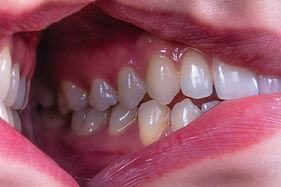All Seasons Dental
3803 Wales Avenue NW
Massillon, Ohio 44646
330-833-4169
smile@allseasonsdentalohio.com
Emily J. Cheyney DDS
Periodontal Therapies
Treating periodontal disease requires specialized knowledge and tools to effectively manage the condition. Dr. Cheyney and our trained hygienists are trained to diagnose and treat mild to moderate cases of periodontal disease, there are certain limitations to what can be accomplished in our office. In more advanced cases, referral to a periodontist—who specializes in the prevention, diagnosis, and treatment of periodontal disease—may be necessary. Below is an overview of treating periodontal disease in our office and why and when you may be referred to a specialist.
Treatment at All Seasons Dental:
-
Convenience: Patients can receive treatment from their trusted general dentist, avoiding the need for a separate referral or additional appointments with a specialist.
-
Cost-Effective for Early-Stage Disease: For mild to moderate cases of gingivitis or periodontitis, general dentists can effectively manage treatment through scaling, root planing, and maintenance therapy.
-
Comprehensive Care: Since general dentists are responsible for the overall health of the patient’s teeth and gums, they can integrate periodontal care into the broader treatment plan, addressing other dental issues at the same time.
-
Comfort: Patients may prefer seeing their regular dentist due to familiarity and trust.
Working hand in hand with a periodontist:
-
Specialized Knowledge and Expertise: Periodontists are experts in managing all stages of periodontal disease, including severe cases that may involve advanced bone loss, receding gums, and the need for surgical procedures.
-
Advanced Treatment Options: Periodontists can offer treatments beyond basic scaling and root planing, such as regenerative procedures, gum grafts, bone grafting, and the use of advanced lasers to promote healing and tissue regeneration.
-
Surgical Interventions: For advanced cases requiring surgical intervention (e.g., pocket reduction surgery, crown lengthening, or implants), periodontists are specially trained to perform these procedures.
-
Comprehensive Care for Advanced Disease: Periodontists are trained to provide a more holistic approach to managing severe periodontal disease, including addressing factors like tooth mobility, bone loss, and the need for long-term post-treatment maintenance.
A referral to a periodontist may be recommended in the following cases:
-
Severe Periodontal Disease: If the patient has advanced bone loss, deep periodontal pockets, or mobility in teeth, a periodontist is equipped to manage these complex issues.
-
Failure to Respond to Initial Treatment: If non-surgical treatments like scaling and root planing have not been successful, a periodontist may offer advanced therapies.
-
Surgical Needs: Cases requiring gum or bone grafting, crown lengthening, or surgical pocket reduction may need to be addressed by a periodontist.

